Does Tattoo Removal Cream Work?
Discover whether this revolutionary remedy can erase ink or is just wishful thinking.
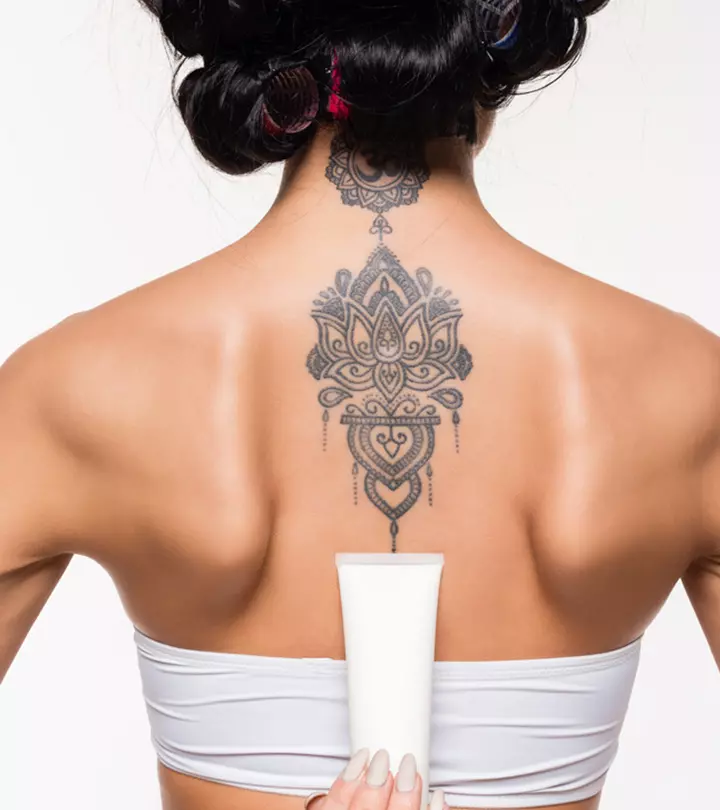
Image: Shutterstock
Tattoos are powerful expressions of personal stories. But sometimes, our narratives evolve, and so do our choices, and what once seemed meaningful enough to etch onto our skin feels regrettable as time goes on. This is where a tattoo removal cream comes into the picture. It is a topical solution to fade or eliminate unwanted tattoos. The cream may contain active ingredients like glycolic acid, salicylic acid, and trichloroacetic acid. These are known to exfoliate the outer layer of the skin and improve skin scarring and hyperpigmentation (1), (2), (3). Tattoo removal creams may also contain hydroquinone, a skin-lightening agent used to treat hyperpigmentation and freckles (4). Unlike traditional methods like dermabrasion, these creams claim to offer a non-invasive alternative, aiming to fade tattoos gently, without the need for painful procedures.

However, the effectiveness of tattoo removal creams is a subject of constant debate. While some swear by the success of these creams, others remain skeptical about them. In this article, we will help you figure out the truth behind these creams, and how safe they are. Keep reading to find out if they are an effective option for your ink removal.
In This Article
Does Tattoo Removal Cream Work?
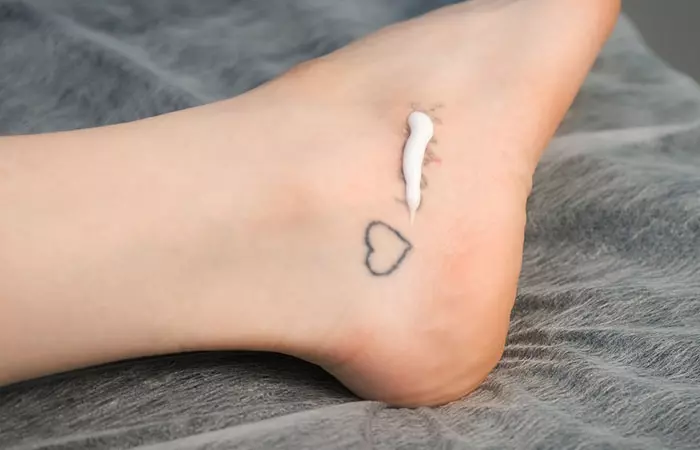
The fact is, topical tattoo removal creams are generally not highly effective. These creams claim to fade or remove unwanted tattoos by peeling or bleaching the epidermis, the outermost layer of the skin. Some brands even claim that their product can replace the tattoo pigment trapped in the skin cells. However, the FDA does not approve of these creams and any ointments and DIY kits for tattoo removal. As per the FDA, these peeling agents and bleaching creams can only exfoliate the epidermis layer of the skin superficially (5). This means the primary challenge behind the working of a tattoo fade cream lies in the depth of the tattoo. When you get tattooed, the tattoo ink is injected into the dermis, the middle layer of the skin (6). Since topical creams are applied only on the skin’s outer layer and cannot penetrate deep enough, they can break down the ink particles effectively.
Danny, a YouTuber, tried using tattoo removal creams for a tattoo on his neck. He shared that he was using multiple creams three times a day, for seven weeks. Danny states in his video, “It’s not faded. There’s no broken part. There’s nothing, nothing at all. I’m very very doubtful that this is actually going to do anything if I’m being completely honest. I think I might just be wasting my time (i).”
Before using a tattoo removal cream, it is essential to understand that complete removal may not be guaranteed. Scroll down to the next section to understand what you can expect if you decide to use this topical cream.
Key Takeaways
- Tattoo removal creams claim to fade tattoos by peeling or bleaching the top skin layer. However, the tattoo ink is usually injected into the dermis layer, making these topical creams ineffective.
- They are not FDA-approved and may lead to adverse reactions like scarring, rashes, burns, and permanent skin discoloration.
- Dermabrasion, salabrasion, surgical removal, and using trichloroacetic acid (TCA) are other tattoo removal procedures you should avoid, as these may lead to scarring.
- Laser tattoo removal is the safest and most effective process that your dermatologist may recommend. However, it can be a little pricey and requires multiple sessions.
Tattoo Removal Cream – Before And After
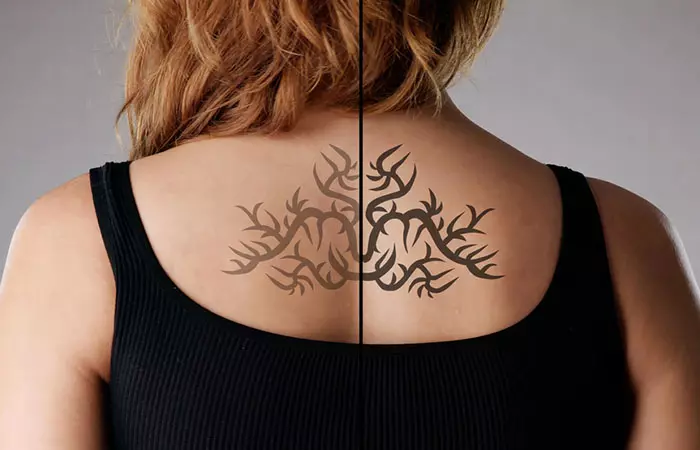
Tattoo removal creams are applied topically to the skin, targeting the tattooed area. The process involves spreading the cream evenly over the tattoo, following the instructions on the product’s packaging. This is usually done consistently for a few days to a week. While there is not much evidence reporting the effectiveness of these creams, here is what you can expect after their application:
- You may experience a slight tingling sensation after the application. If this worsens, stop using the product immediately. Patch-testing the products before use is highly recommended.
- Anecdotal evidence suggests that over time, with consistent use of the cream, your tattoo may start to fade. You will have to keep an eye out for perceivable changes
- The degree of fading (if it occurs) may vary depending on the tattoo size, color, and depth.
Despite the alluring prospect of a non-invasive solution, tattoo removal creams are not very effective, as they cannot reach the dermis layer, where the ink lies. Also, they come with numerous side effects. Learn more about them in the next section.
Side Effects Of Using Tattoo Removal Creams
Currently, no tattoo removal cream available on the market is approved by the FDA (5). Hence, they may lead to these side effects:
- Burns
- Rashes
- Scarring
- Skin discoloration
- Inflammation
- Redness
- Peeling
Further, if you are allergic to any of the key ingredients in these tattoo removal creams, they may also lead to skin irritation. For instance, if your cream contains retinol as an active ingredient and you are allergic to it, the allergic symptoms may include a rapid burning sensation, itching, and rashes (7). Therefore, always check the label for such ingredients and perform a patch test before applying the cream for widespread use.
If you decide to use a tattoo removal cream, it is crucial to follow the instructions provided by the manufacturer to avoid any side effects. Also, it is a good idea to consult a dermatologist before using it. While we’re on the topic, below are a few more tattoo removal options that, if unregulated, may cause severe complications. Read on to know more.
Other Dangerous Tattoo Removal Options To Avoid
Here are some other types of tattoo removal processes you may want to avoid:
1. Dermabrasion
This process involves numbing the tattooed area and scraping the skin using a circle-shaped abrasive brush. The procedure aims to diminish the appearance of the body tattoo by scraping away the skin layer containing the deep ink particles. The cost of dermabrasion depends on various factors like the tattoo size and color. While it can help fade the tattoo, it may not be as effective as the laser tattoo removal procedure. Also, this process may cause scarring and loss of skin pigment (8).
2. Salabrasion
This method for tattoo removal involves the application of a topical anesthetic followed by scrubbing the tattooed area with a salt-soaked abrasive tool. The procedure aims to break down the tattoo pigment by enabling the body’s natural healing processes. While salabrasion is considered an inexpensive option, it is often criticized for its potential to cause inflammation and significant scarring (8).
3. Surgical Excision
This process involves the removal of a body tattoo by cutting out the tattooed skin. This process is performed under local anesthesia, and the wound is then closed with sutures. While it may help remove the entire tattoo, its major drawback is that it causes permanent scarring. It is only considered if you have an allergic reaction to your tattoo, wherein a laser procedure may lead to anaphylaxis i A potentially life-threatening allergic reaction characterized by symptoms like vomiting, difficulty breathing, and the body going into shock. (8).
4. Trichloroacetic Acid (TCA) Peels
It involves applying TCA solution directly onto the tattooed skin. This active removal agent works by causing a chemical burn to gradually fade the body tattoo. Research suggests that the procedure is simple and only has minor complications (9). However, according to a case study of a 26-year-old man who used 100% TCA for his tattoo removal and developed a chemical burn. He obtained TCA from an unauthorized source and applied it to his skin undiscerning for 10 minutes, after which, he developed an extreme burning sensation that would not subside. Eventually, he had to seek medical help for his acid burns (10). Such unregulated use can be harmful to the skin.
Fading a tattoo can be a challenging process, and it is important to note that not everything may work for it. But what other remedies can you try apart from fade creams and the tattoo removal methods mentioned above? Let us find out.
Ways To Fade A Tattoo Naturally
If you are looking for alternative tattoo removal methods to fade a tattoo, here are some home remedies with natural ingredients you may try. However, they have no scientific backing and there is no evidence of their effectiveness.
1. Fresh Lemon Juice

Lemon extract is used as a potent skin-bleaching ingredient in the preparation of select beauty products (11). Anecdotal evidence suggests that it may also help fade tattoo ink. But much like the creams, lemon juice does not penetrate deep enough into the skin to be effective. However, always perform a patch test before using it. Moreover, dilute it with water, as fresh lemon juice at high concentrations may lead to skin irritation (11).
2. Sugar Or Salt Scrub
Anecdotal evidence suggests that rubbing the tattooed skin with body exfoliants prepared by mixing salt or sugar may help fade its colors. However, this home remedy may only help you eliminate dead skin cells, which is not linked to tattoo removal. Also, use it with caution, as physical exfoliation may damage your skin barrier leading to irritation.
3. Bio-Oil
Research suggests that bio-oil, a skin care product, may help reduce the appearance of noticeable scars and stretch marks (12). Due to this belief, some people also conclude that it may help fade a tattoo. However, there is no evidence supporting this claim.
4. Aloe Vera
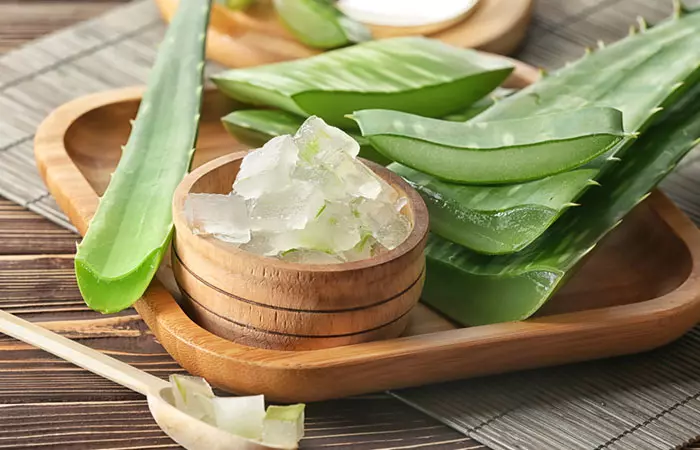
Aloe vera is commonly used to help lighten dark spots and hyperpigmentation (13). While there is no scientific evidence supporting aloe vera gel’s efficacy in tattoo removal, anecdotal evidence suggests that applying fresh aloe vera gel to the tattooed area regularly may help fade its color to some extent.
5. Sunlight
One of the biggest factors in a tattoo’s longevity is natural sunlight. All tattoo artists urge their clients to protect their tattoos by using sunscreen or sunblock, as new tattoos tend to fade when exposed to the sunlight. However, note that exposure to UV rays from the sun can cause skin cancer, premature aging, and damage to the skin in other ways. It may also prolong the healing process. Therefore, go for better and safer ways to remove your tattoo after discussing the matter with your tattoo artist.
 Quick Tip
Quick TipJust like tattoo fade creams, the reports of successful tattoo removal using these home remedies are close to none. So, how does one get their tattoo removed safely? Let us find out.
What Can You Do To Remove Tattoos Safely?
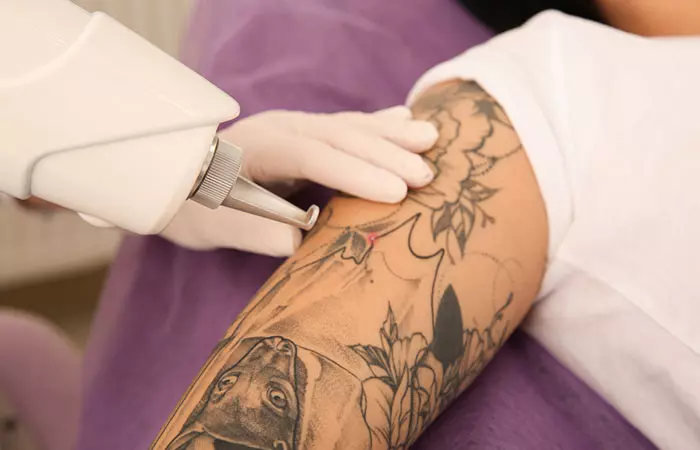
According to the experts, the safest and most effective treatment option that can help fade your ink is laser tattoo removal. It is a cosmetic procedure that uses concentrated beams of light, at varying wavelengths for different colors (14). These heat up the color pigments of the tattoo, causing them to fragment into smaller particles that the body can naturally eliminate. The laser tattoo removal procedure may require multiple sessions to completely fade the tattoo, depending on factors like size and ink colors. For instance, if you have a large colorful tattoo, it may require more laser removal sessions than a smaller tattoo. Further, research suggests this effective method is best for fading tattoos with darker colors like black, blue, brown, and green, while it might be challenging for it to tackle colors like light blue, red, orange, and yellow (15).
A study compared different types of Q-switched lasersi Medical devices that emit short bursts of high-energy light, commonly employed for tattoo removal and in the treatment of acne scars. (Nd:YAG, alexandrite, and ruby) for removing blue-black tattoo pigments. It found that the ruby laser was the most effective, but had a higher risk of causing hypopigmentationi A decrease in the skin's pigmentation due to medical procedures and injuries that results in lighter skin patches. . The study also found that different laser treatments worked differently for different tattoo colors. For instance, the Nd:YAG laser may be ideal for tattoos with stubborn pigments like red, while the alexandrite laser treatment may work better for blue and green pigments and the ruby for purple and violet pigments (8). You can talk to a cosmetic dermatologist to figure out how to remove a tattoo using a method most suitable for you.
 Did You Know?
Did You Know?If you are reluctant about tattoo removal lasers and do not want to spend thousands of dollars on them, there is another safe option you may try – body makeup. Instead of spending time getting the ink removed from the deeper layers of the skin, simply apply a full-coverage foundation and set it with translucent powder to conceal it. You only need to ensure that the foundation you choose matches your skin tone.
Conclusion
There is no evidence that tattoo removal creams may effectively help fade away your tattoo. In fact, these creams can damage skin and may also have side effects like visible scars, rashes, and burns. Therefore, you should avoid using them as an alternative to FDA-approved treatments like laser tattoo removal. It is crucial to recognize that any tattoo removal procedure may be complex and may take even more time than the actual tattooing process. Also, the procedure requires professional expertise. Therefore, consult a registered cosmetic dermatologist before opting for any procedure on your tattooed skin. However, you can always cover up your inked skin with a tattoo concealer cream or a full-coverage foundation if you do not have the patience to sit through expensive tattoo removal procedures.
Frequently Asked Questions
Will hydrocortisone cream fade tattoos?
No, hydrocortisone cream may not help fade tattoos, as it is a topical product primarily used to reduce inflammation and itching associated with skin conditions like seborrheic dermatitisi A common inflammatory skin condition characterized by red, itchy, and flaky patches of skin, typically occurring on the scalp. (17). It cannot penetrate the deeper layers of the skin to fade the pigments used in tattoos.
How to make homemade tattoo removal cream?
You may make a homemade tattoo removal cream by mixing natural ingredients like honey and aloe vera with bleaching agents like fresh lemon juice (11). However, there is no scientific evidence that claims that this DIY tattoo removal remedy may help fade your tattoo. It is recommended that you consult your dermatologist for the best options for tattoo removal.
Can I use tattoo removal cream on any type of tattoo?
No, it is not recommended to use tattoo removal creams for all types of tattoos. Anecdotal evidence suggests these may work best for older tattoos with lighter ink colors. Always consult a dermatologist or tattoo removal specialist for personalized advice based on your tattoo.
Is tattoo removal cream safe for all skin types?
No, tattoo removal creams may not be safe for all skin types, as they can contain harsh chemical ingredients like bleaching agents that may cause rashes and burns (4). Avoid using them if you have extremely sensitive skin.
Can I use tattoo removal cream on a new tattoo?
No, it is not advisable to use tattoo removal cream on a new tattoo. Anecdotal evidence suggests that applying these creams on a fresh tattoo may cause irritation and negatively impact its healing process. Follow your tattoo artist’s aftercare instructions well to take proper care of your new tattoos and avoid permanent scarring.
Can pregnant or breastfeeding individuals use tattoo removal creams?
No, it is not recommended for pregnant or breastfeeding individuals to use tattoo removal creams, as the safety of the chemicals in these products during pregnancy or while breastfeeding is uncertain. For instance, some of these creams contain key ingredients like retinoids, which have not been studied enough for their safety during pregnancy (18).
Illustration: Does Tattoo Removal Cream Work?
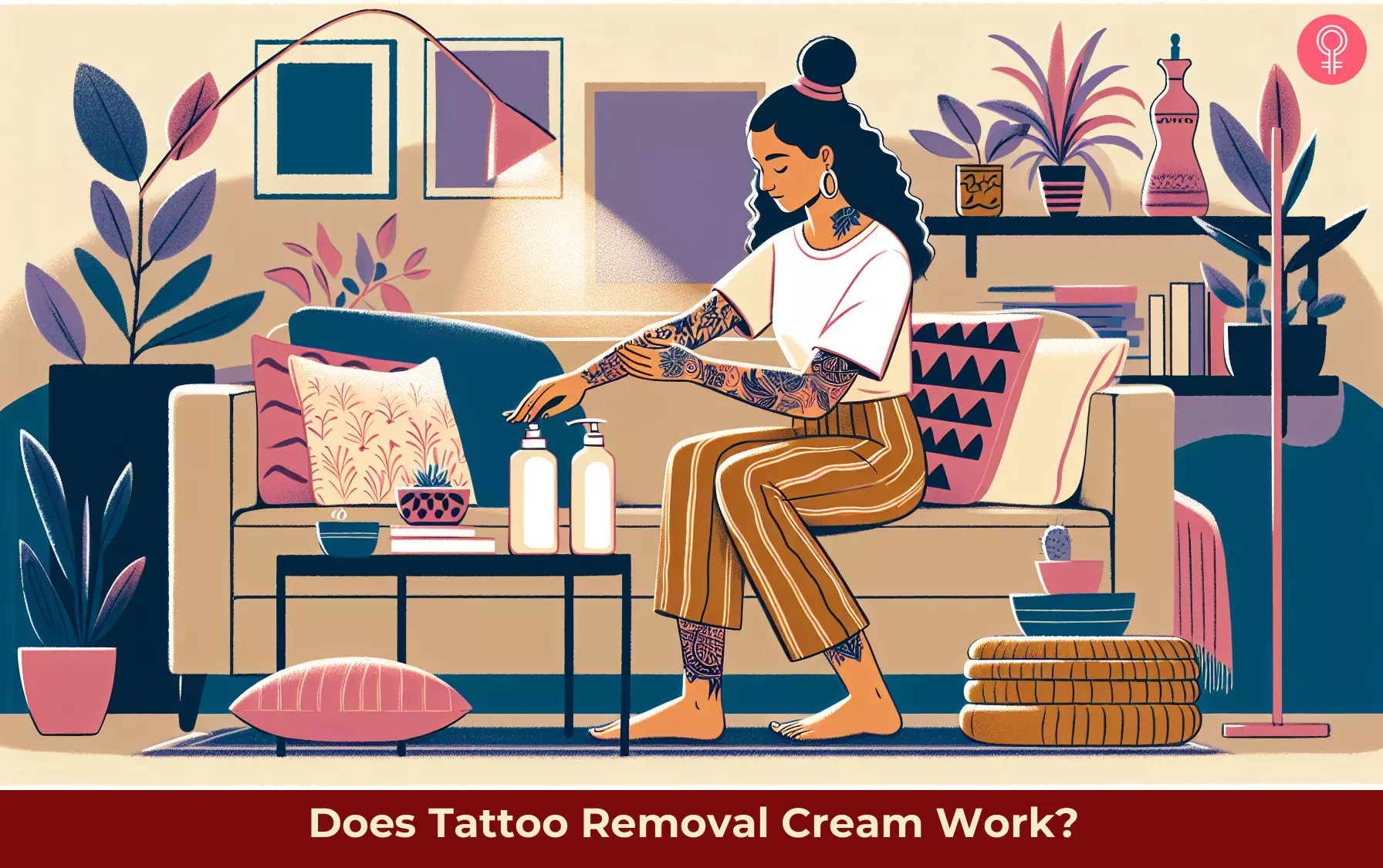
Image: Dall·E/StyleCraze Design Team
Are you curious if you can fade your permanent tattoo using topical tattoo removal creams? This video will help you decode the buzz around them. Check it out.
Personal Experience: Source
StyleCraze's articles are interwoven with authentic personal narratives that provide depth and resonance to our content. Below are the sources of the personal accounts referenced in this article.
(i). Do tattoo removal creams work 7 weeks independent testerhttps://www.youtube.com/watch?v=2OHfUnQ5KVo
References
Articles on StyleCraze are backed by verified information from peer-reviewed and academic research papers, reputed organizations, research institutions, and medical associations to ensure accuracy and relevance. Read our editorial policy to learn more.
- Glycolic acid peel therapy – a current review
https://www.ncbi.nlm.nih.gov/pmc/articles/PMC3875240/ - Salicylic acid as a peeling agent: a comprehensive review
https://www.ncbi.nlm.nih.gov/pmc/articles/PMC4554394/ - Chemical peels for skin resurfacing
https://www.ncbi.nlm.nih.gov/books/NBK547752/ - Hydroquinone
https://www.ncbi.nlm.nih.gov/books/NBK539693/ - Tattoo removal: options and results
https://www.fda.gov/consumers/consumer-updates/tattoo-removal-options-and-results - Tattoo ink nanoparticles in skin tissue and fibroblasts
https://www.ncbi.nlm.nih.gov/pmc/articles/PMC4464189/ - Anti-irritant strategy against retinol based on the genetic analysis of Korean population: a genetically guided top-down approach
https://www.ncbi.nlm.nih.gov/pmc/articles/PMC8706521/ - Laser tattoo removal
https://www.ncbi.nlm.nih.gov/pmc/articles/PMC2884836/ - A simple method of tattoo removal
https://pubmed.ncbi.nlm.nih.gov/2251635/ - Letter to the editor the perils of do it yourself chemical tattoo removal
https://www.ncbi.nlm.nih.gov/pmc/articles/PMC2847822/ - The hunt for natural skin whitening agents
https://www.ncbi.nlm.nih.gov/pmc/articles/PMC2801997/ - Observer-blind randomized controlled study of a cosmetic blend of safflower, olive, and other plant oils in the improvement of scar and striae appearance
https://pubmed.ncbi.nlm.nih.gov/29094366/ - Aloe vera gel for prevention of chemotherapy-induced hyperpigmentation: Four case reports
https://www.ncbi.nlm.nih.gov/pmc/articles/PMC10289538/ - Laser tattoo removal: a review
https://pubmed.ncbi.nlm.nih.gov/22092752/ - Laser tattoo removal
https://www.ncbi.nlm.nih.gov/books/NBK442007/ - An Overview of Laser in Dermatology: The Past, the Present and … the Future (?)
https://www.ncbi.nlm.nih.gov/pmc/articles/PMC5535675/ - Hydrocortisone 1% cream and sertaconazole 2% cream to treat facial seborrheic dermatitis: a double-blind, randomized clinical trial
https://www.ncbi.nlm.nih.gov/pmc/articles/PMC5440452/ - Skin changes and safety profile of topical products during pregnancy
https://www.ncbi.nlm.nih.gov/pmc/articles/PMC8884185/
Read full bio of Scott Terry
Read full bio of Joyce Joyson
Read full bio of Madhumati Chowdhury
Read full bio of Aparna Harry






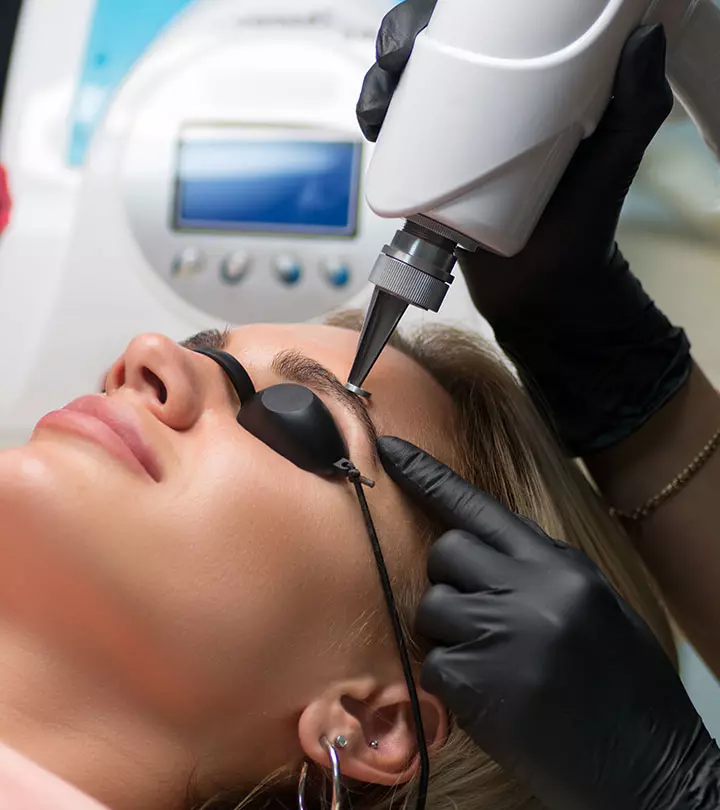
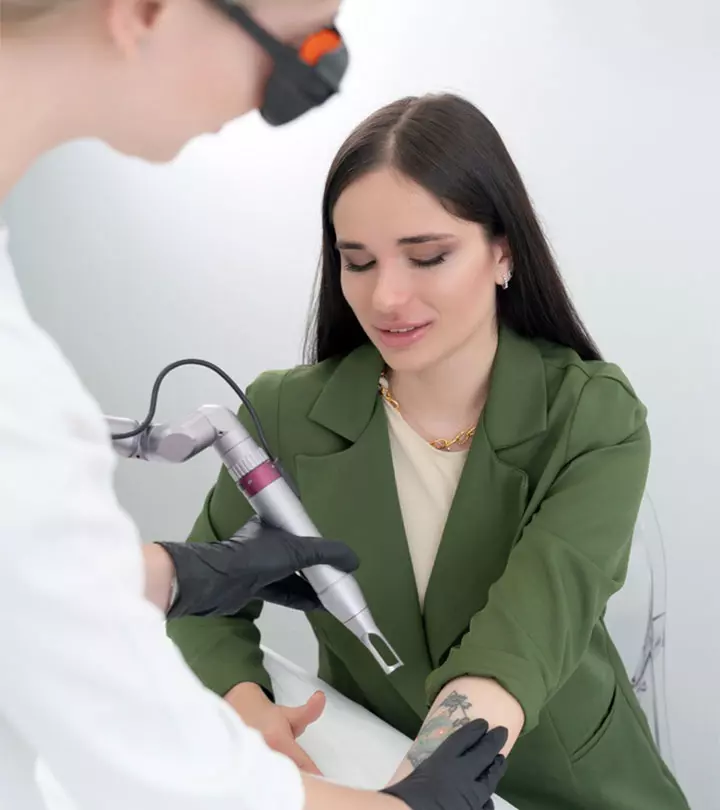
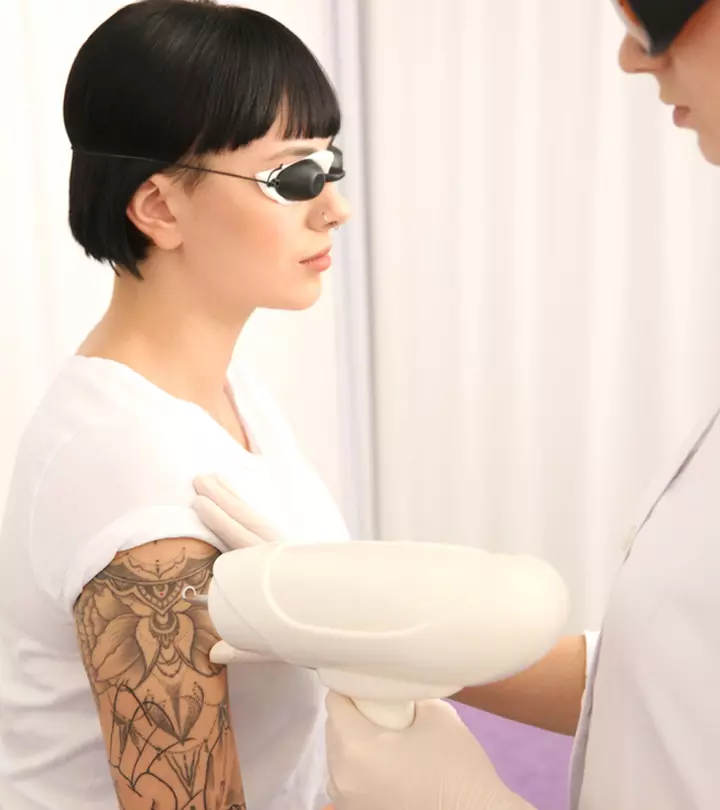
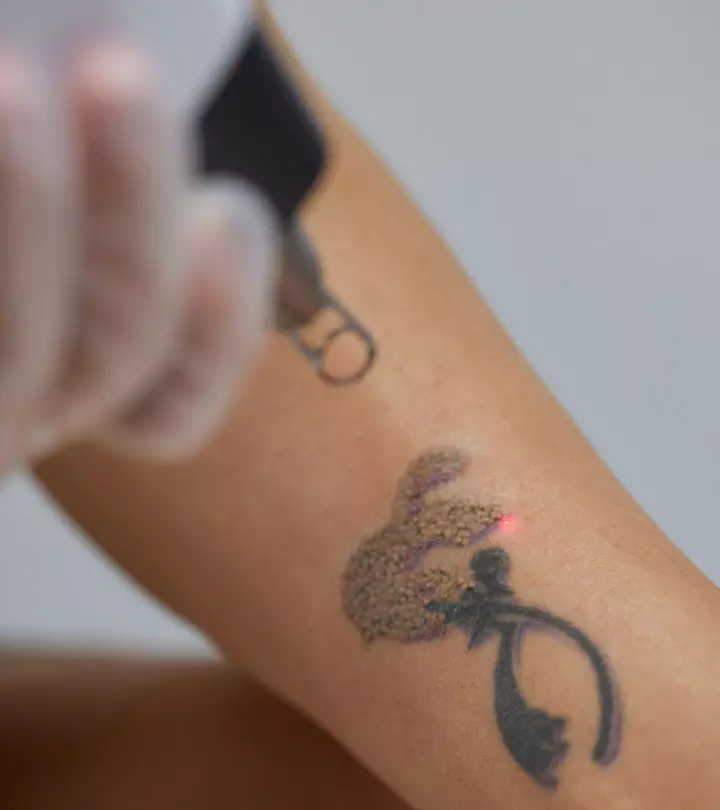

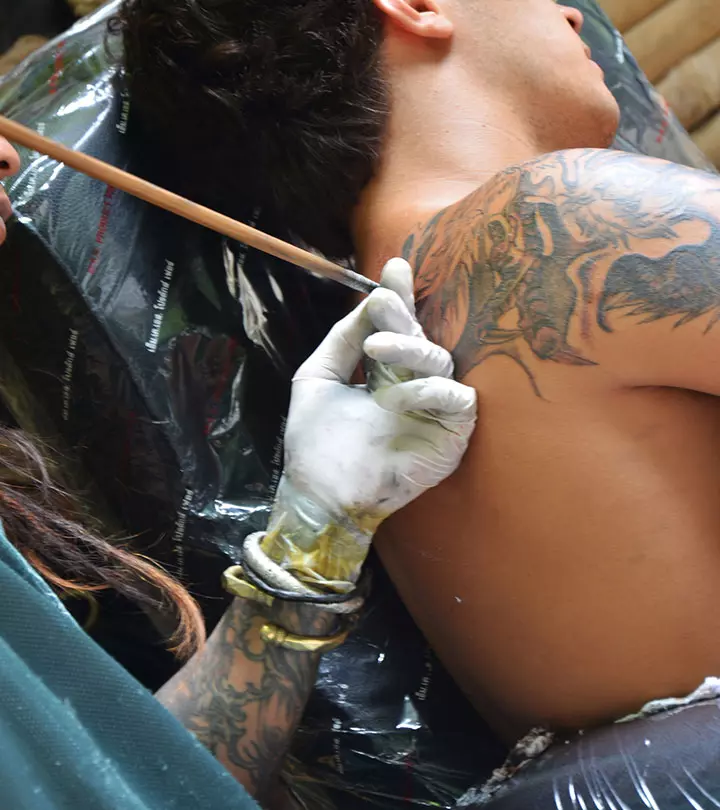
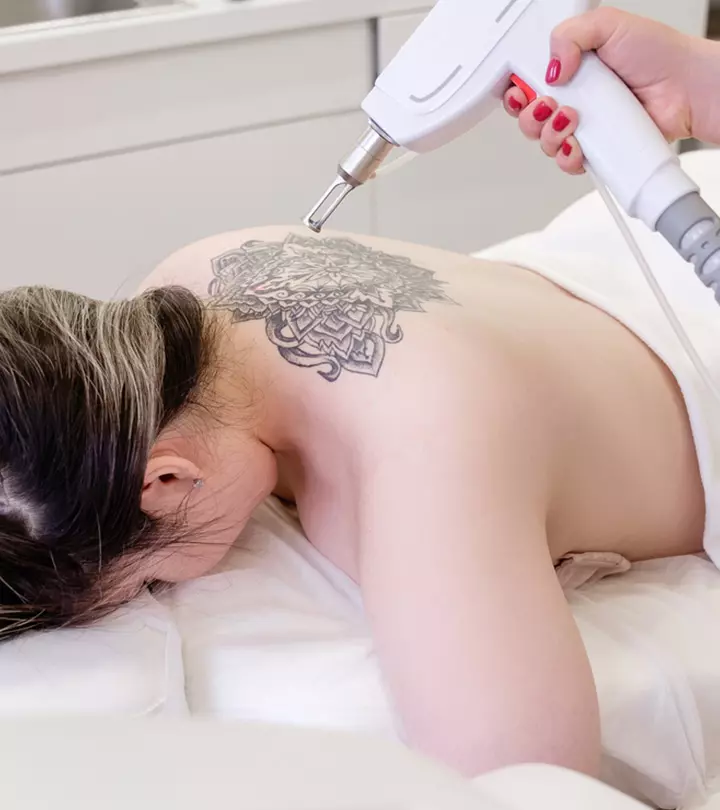
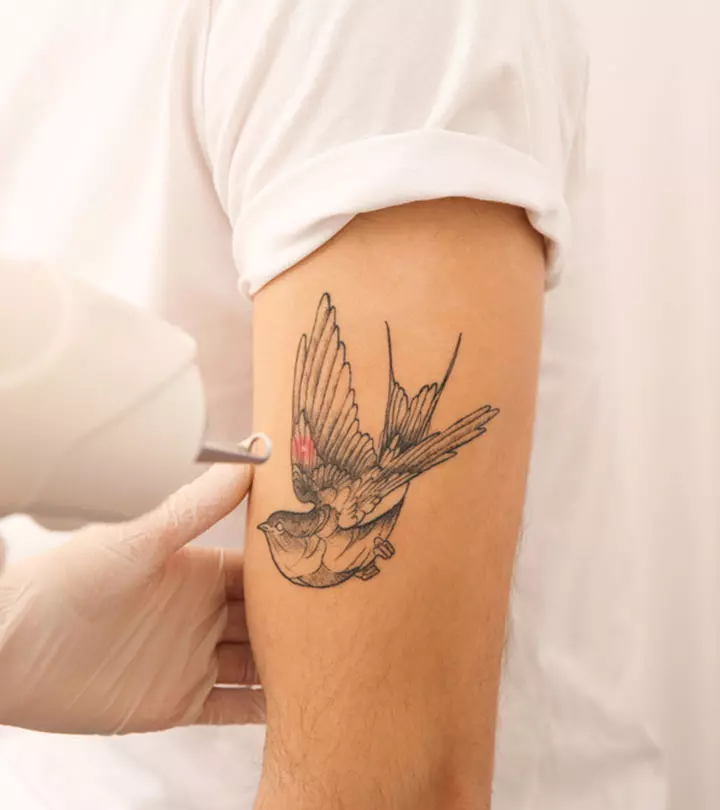




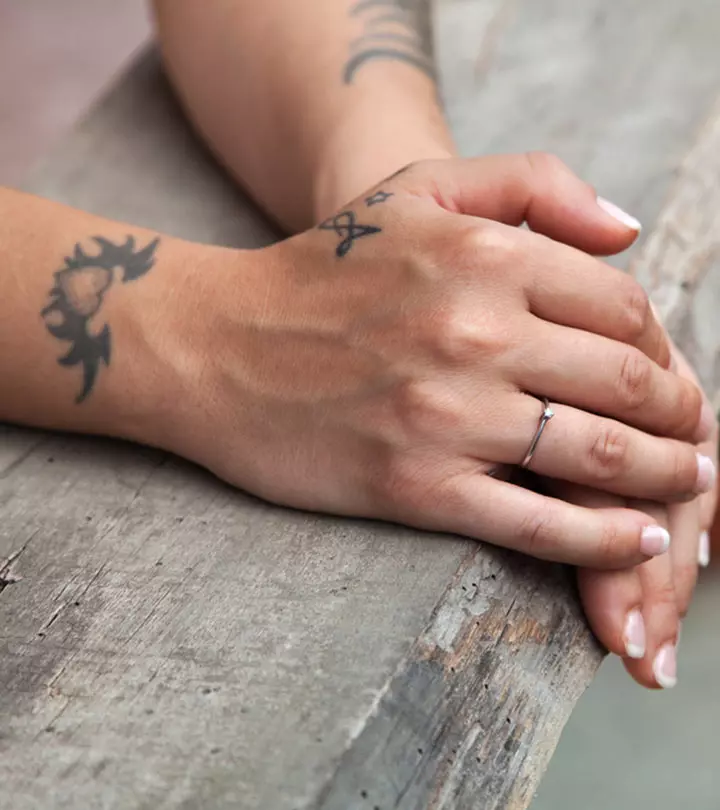
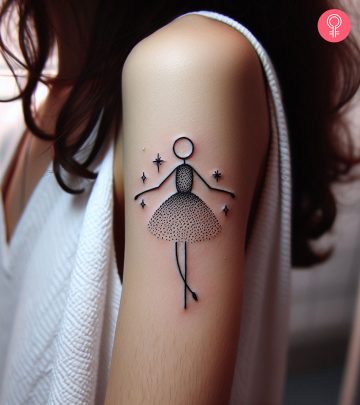
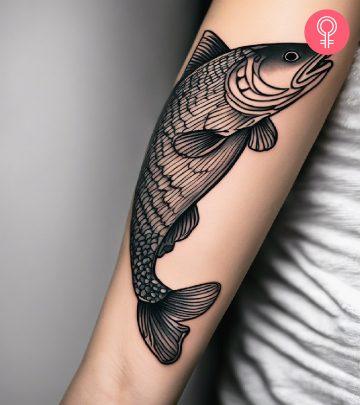


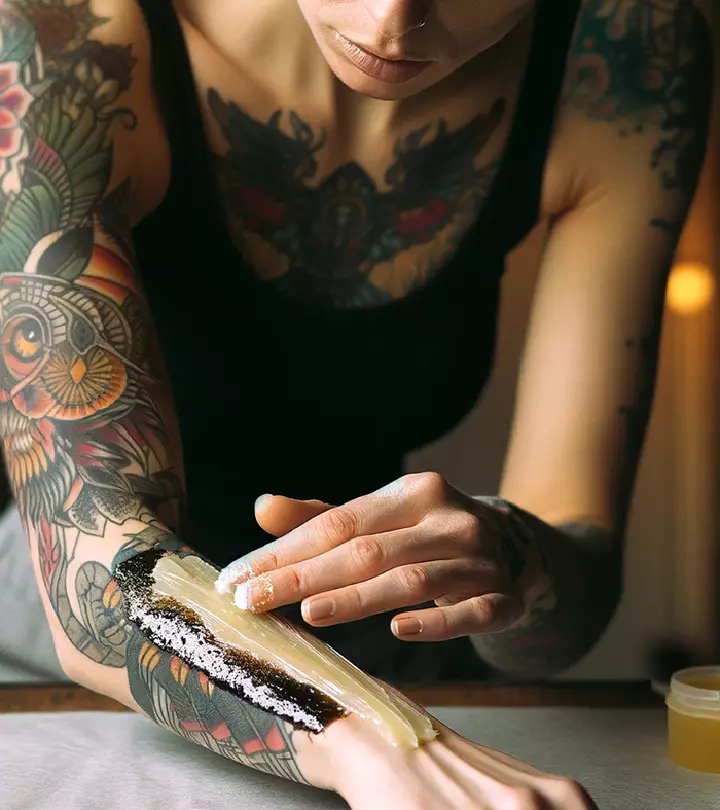

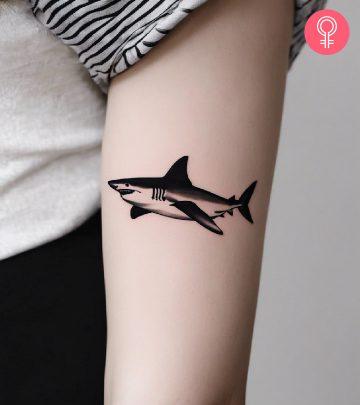
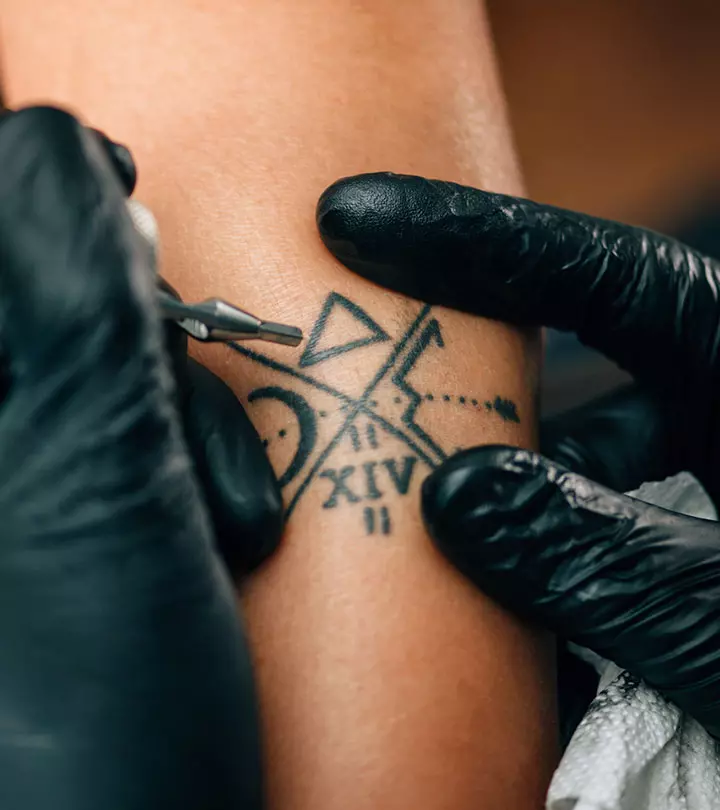
Community Experiences
Join the conversation and become a part of our empowering community! Share your stories, experiences, and insights to connect with other beauty, lifestyle, and health enthusiasts.